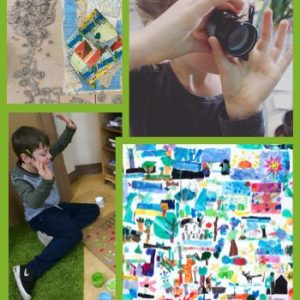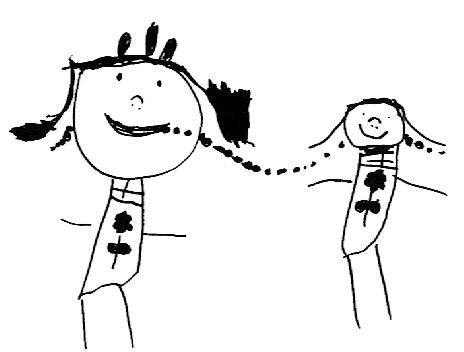
Dates: 29 July, 19 August, 11 September and 17 November 2021
Venue: Online
Category: Event
Book ALL 4 WEBINARS before 29 July and SAVE 10%! Registrations close 12pm (AEST) 29 July 2021.
Webinar recordings will be made available 2 days after the event is held for a period of 7 days.
This series supports teachers working in Primary School settings to explore Australian perspectives through some of the core principles of the educational project of Reggio Emilia as applied in local contexts. The series invites us to see children, curriculum, learning and teaching in Primary School contexts with new eyes and renewed practices by confronting traditional mindsets and proposing alternative narratives on education.
Webinar 1 – Reinventing schooling – creating systems of change – Thursday 29 July 7.30pm-8.30pm (AEST)
Click here to book Webinar 1.
This webinar will create a space for courageous thinking for teachers and leaders who are questioning and searching for a new way to approach education that does justice to what we believe is possible for children and their learning.
Webinar 2 – Re-thinking curriculum – constructing curriculum through an overarching research lens – Thursday 19 August 7.30pm-8.30pm (AEST)
Click here to book Webinar 2.
Blue Gum Community School’s evolving journey to adopt RESEARCH as a fundamental lens for a whole school curriculum. How? Lessons learnt while meeting mandates.
“Learning is a process of constructing, testing and reconstructing theories, constantly creating new knowledge. Teachers as well as children are constantly learning. Learning itself is a subject for constant research, and as such must be made visible.” Rinaldi, C. and Moss, P. ‘What is Reggio?’, in Children in Europe: Celebrating 40 years of Reggio Emilia – the pedagogical thought and practice underlying the world renowned early services in Italy. March 2004. Scotland. Children in Scotland (p2).
Webinar 3 – A Practice that Connects the Personal, Local and Global – Saturday 11 September 10.00am-11.30am (AEST)
Click here to book Webinar 3.
“We can never think of the child in the abstract. When we think about a child, when we pull out a child to look at, that child is already tightly connected and linked to a certain reality of the world — she has relationships and experiences. We cannot separate this child from a particular reality. She brings these experiences, feelings, and relationships into school with her.” Loris Malaguzzi, Your Image of the Child: Where Teaching Begins
How might school be a place for each child to develop their sense of civic participation and belonging? Holding a strong image of the child invites us to keep our classroom walls permeable: to seek connections between the feelings and experiences children are having with each other, their personal identities, and the larger world that we recognize they have a right to know about. This session explores practices in working with primary grades children that keep those potentially disparate and untended lives an integrated whole.
Participants are encouraged to view the short film Becoming Who I Am before this session.
Webinar 4 – Designing schooling from a strong image of the child – Wednesday 17 November 7.30pm-8.30pm (AEST)
Click here to book Webinar 4.
The Princes Hill Primary Community has a shared purpose to, partner with our students on their life-long journey of learning and discovery – so they may participate meaningfully and with purpose in a work they are already helping to shape. We live this purpose through our shared values of, ‘One community’, ‘Expanding Possibilities’, ‘Strong and Capable Children’.
Princes Hill Primary Schools, ‘Principles of Learning’, guide the pedagogical and organisations elements of the school to meet this vision.
Children are active, important members of a variety of communities (e.g. family, school, ethnic cultures, multi-media, and friendship groups) their understanding of the world develops through these social and cultural interactions.
We learn through the unity of emotions and intellect.
We learn through critical engagement in complex, purposeful contexts where relevant connections are made to our world.
We learn through consciousness of thought where we re-configure pre-existing understandings and concepts.
We develop motives to learn through positioning ourselves within social situations.
We learn through active participation, using the many forms of expression.
Children and teachers co-create the learning within purposed designed spaces called a learning neighbourhood, involving a variety of forms of expression, research and connection to local and global communities. Teachers use provocations, experiences, tools and experts, including parents who bring varying fund of knowledge and skills; to support and challenge the learning community within their diverse, authentic collective inquires.
Our children are the creators of the present and the future, and need the opportunity throughout each day to imagine, create, plan and implement their ideas about the world. The role of the teacher is to support experiences within the zone of potential development, provoking a learning motive, which has the potential to place children within their zone of proximal development, leading to development; this in turn is acted upon in authentic contexts.
In this presentation, we will explore the interrelated components of the approach and examples of authentic inquires, which lead to the further development of the child and the community, in turn informing and provoking possible futures.
Webinar Terms and Conditions:
If you require assistance with resetting your password please contact REAIE.
The Reggio Emilia Australia Information Exchange (REAIE) is a not-for-profit, member based organisation and an invited representative of the Reggio Children International Network (Italy). REAIE engages in collaboration, research and dialogue through the exchange of information between Australia and the educators in the city of Reggio Emilia.
REAIE does NOT own or operate any education services or agencies for children.
The Reggio Emilia Australia Information Exchange (REAIE) is a not-for-profit, member based organisation and an invited representative of the Reggio Children International Network (Italy). REAIE engages in collaboration, research and dialogue through the exchange of information between Australia and the educators in the city of Reggio Emilia.
REAIE does not own or operate any education services or agencies for children.
REAIE acknowledges the Aboriginal and Torres Strait Islander peoples of this nation and their continuing connection to country and culture. Our meetings and events take place on ancestral lands and nearby waterways. We pay our respects to the Elders and educators of each nation, past, present and emerging.
© 2021 Reggio Emilia Australia Information Exchange
